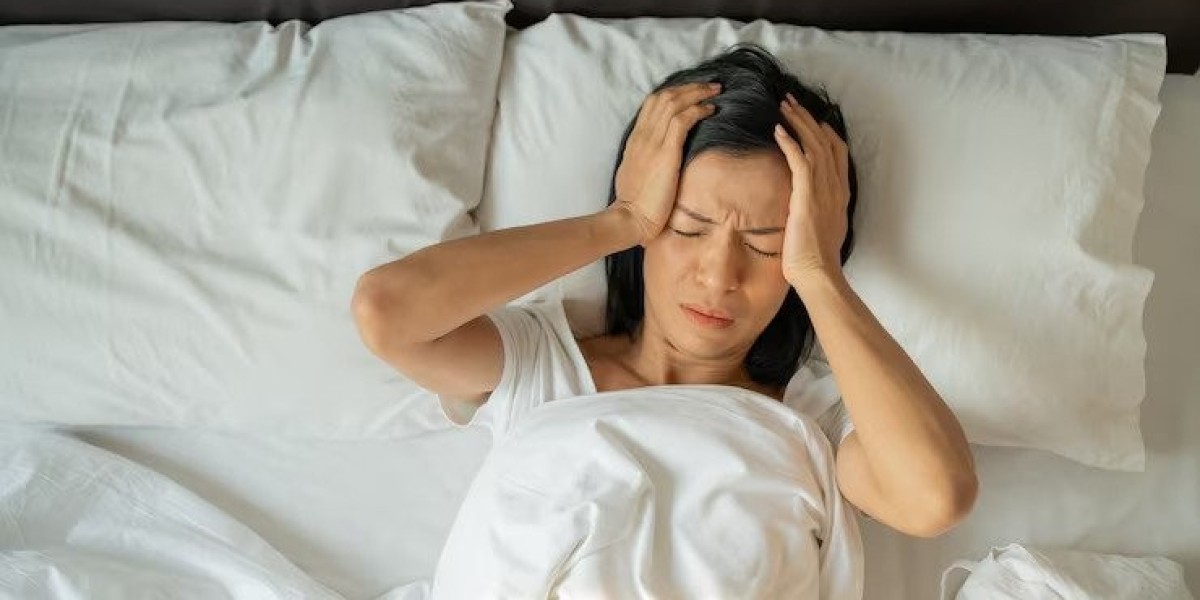Insomnia is a common sleep disorder that affects millions of people worldwide. Despite its prevalence, there are many misconceptions surrounding this condition that can lead to confusion and ineffective treatments. In this article, we will explore and debunk some of the most prevalent myths about insomnia, providing you with a clearer understanding of this complex issue.
What is Insomnia?
Before delving into myths, it's essential to define insomnia. Insomnia is characterized by difficulty falling asleep, staying asleep, or waking up too early, resulting in daytime impairment. It can be classified as acute (short-term) or chronic (long-term), with various underlying causes including stress, anxiety, depression, and certain medical conditions.
Myth 1: Insomnia is Just a Result of Stress
The Reality
While stress is a significant contributor to causes of insomnia for many individuals, it is not the sole cause. Insomnia can also stem from a range of factors such as hormonal changes, medical conditions (like asthma or arthritis), medications, and lifestyle choices. A comprehensive approach that addresses multiple aspects of a person’s life is crucial for effective management.
Myth 2: You Can Catch Up on Sleep During the Weekend
The Reality
The idea that you can "catch up" on sleep by sleeping in on weekends is a myth. While extra sleep may help alleviate some sleep debt, it does not fully compensate for the effects of chronic sleep deprivation. Irregular sleep patterns can disrupt your circadian rhythm, leading to further sleep issues. Maintaining a consistent sleep schedule is key to promoting better sleep quality.
Myth 3: Insomnia Only Affects Older Adults
The Reality
Many people believe that insomnia primarily affects the elderly. In reality, insomnia can affect individuals of all ages, including children and adolescents. Factors such as academic pressure, social dynamics, and technology use contribute to sleep disturbances in younger populations. It’s crucial to recognize that insomnia can be a widespread issue, irrespective of age.
Myth 4: Insomnia is All in Your Head
The Reality
While psychological factors like anxiety and depression can contribute to insomnia, the condition is not merely a mental phenomenon. Insomnia can have physiological causes, such as medical conditions or hormonal imbalances. It’s essential to take a holistic approach when addressing insomnia, recognizing both mental and physical health aspects.
Myth 5: Sleeping Pills are the Best Solution for Insomnia
The Reality
Although sleeping pills can provide temporary relief for some individuals, they are not a long-term solution for insomnia. Relying solely on medication can lead to dependency and may not address the underlying issues contributing to sleep problems. Behavioral therapies, lifestyle changes, and relaxation techniques are often more effective in managing chronic insomnia.
Myth 6: Watching TV Before Bed Helps You Sleep
The Reality
Many believe that watching TV can help them relax before bed. However, the blue light emitted by screens can interfere with melatonin production, the hormone responsible for regulating sleep. Instead of screen time, consider alternative activities like reading a book, practicing meditation, or engaging in gentle yoga to promote relaxation and better sleep.
Myth 7: Napping is Bad for Insomnia
The Reality
While long or irregular naps can negatively impact nighttime sleep, short naps can actually be beneficial for some individuals. A brief nap (20-30 minutes) can help improve alertness and performance without interfering significantly with nighttime sleep. It's essential to be mindful of the timing and duration of naps to minimize potential disruptions.
Myth 8: Insomnia is a Life Sentence
The Reality
Many people believe that once they develop insomnia, they will struggle with it indefinitely. However, insomnia is often a treatable condition. By identifying triggers and implementing effective strategies—such as cognitive-behavioral therapy for insomnia (CBT-I), lifestyle changes, and improved sleep hygiene—many individuals can overcome insomnia and enjoy restful nights.
Myth 9: You Need Eight Hours of Sleep to be Healthy
The Reality
While eight hours is often cited as the ideal amount of sleep, individual sleep needs can vary widely. Some people function well for seven hours, while others may require nine or more. The key is to pay attention to your body’s signals and prioritize quality sleep over strictly adhering to a specific number of hours.
Myth 10: Insomnia Means You Can't Sleep at All
The Reality
insomnia disorder does not necessarily mean complete inability to sleep. Many individuals with insomnia can fall asleep but may struggle to stay asleep or wake up too early. Understanding this nuance can help in recognizing and addressing the specific patterns of sleep disturbances one may be experiencing.
Conclusion
Understanding the realities of insomnia is essential for effective management and treatment. By debunking these common myths, we can promote a better understanding of the condition and encourage those affected to seek appropriate help. If you or someone you know is struggling with insomnia, consider consulting a healthcare professional who can provide guidance tailored to individual needs. Remember, better sleep is possible with the right strategies and support.
Naijamatta is a social networking site,
download Naijamatta from Google play store or visit www.naijamatta.com to register. You can post, comment, do voice and video call, join and open group, go live etc. Join Naijamatta family, the Green app.
Click To Download
